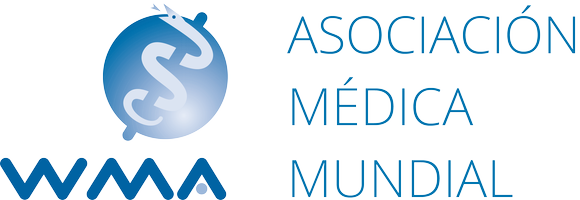Physicians and Lawyers Learn to Collaborate on Detecting Evidence of Torture
The first stage of a worldwide initiative to train physicians and lawyers to detect evidence of torture has been completed successfully.
The initiative is funded by the European Commission and organised by the International Rehabilitation for Torture Victims and the World Medical Association, in collaboration with Physicians for Human Rights in the USA and the Human Rights Foundation of Turkey.
The target groups for training have been health and legal professionals working in government agencies or non-governmental organisations in five countries – Mexico, Morocco, Georgia, Uganda and Sri Lanka. In total, the seminars have reached 244 health professionals and 123 legal professionals.
‘Improved documentation and investigation of torture increases the number of torturers who will have to face criminal investigation and prosecution – and adequate compensation and rehabilitation for victims of torture are secured,’ said Brita Sydhoff, Secretary-General of the International Rehabilitation Council for Torture Victims (IRCT).
The training modules are based on the Istanbul Protocol, which is the world’s first set of international guidelines for the assessment of people who claim to have suffered torture and ill treatment. The United Nations High Commissioner for Human Rights endorses the manual and principles designed to ensure that cases of alleged torture are investigated.
Dr Yoram Blachar, Chair of the World Medical Association Council, who returned recently from Sri Lanka, said:
‘The Istanbul Protocol and the proposed guidelines are an essential part of bringing to account those responsible for the global problem of torture. Many health and legal professionals have little or no training in the investigation and documentation of torture, whether physical or psychological. We hope that physicians will use these guidelines when visiting places of detention or when examining victims in other locations to quickly identify cases where torture might have occurred.’
The five countries were selected because of their different political and cultural settings. Dr Ole Vedel Rasmussen, IRCT, member of the United Nations Committee Against Torture (UNCAT) and the European Committee for the Prevention of Torture, who returned recently from Uganda and Mexico, said:
‘Local implementation of the protocol needs to take into account regional differences in torture practices. In general you can say that the most common methods of torture include beating, electric shocks, suffocation, submersion in water, burns, and rape and sexual assault. Further torture routinely includes isolation, humiliation, mock executions, and forced witnessing of the torture of others, such as loved ones.’
The Istanbul Protocol Implementation Project is carried out in collaboration with local partners, typically rehabilitation centres for torture victims, national medical associations, bar associations and human rights organisations. Health and legal professionals are trained in the guidelines, and training material, including a CD-ROM, has been developed for the purpose.
The total costs of the project amounts to 1.2 mill Euro. The EU finances 80 per cent of this amount. Other donors are the British High Commission in Sri Lanka, and the Dutch Embassy in Uganda.
For further information please contact:
- Ms. Brita Sydhoff (IRCT)
+45 30 54 23 35 - Poul Struve Nielsen (IRCT Media Co-ordinator)
+45 33 76 06 49
+45 23 34 55 09
psn@irct.org
IRCT website: www.irct.org - Dr Delon Human (WMA secretary general)
00 41 79 200 44 24 (mobile) - Nigel Duncan (WMA Public Relations Consultant)
+44 (0) 20 8997 3653
+44 (0) 7984 944 403 (mobile)
nduncan@ndcommunications.co.uk
Contact names for further information:
- Dr James Appleyard, a UK paediatrician and Past-President of the WMA, who visited Uganda
(tel. 01227 781771) - Dr Inge Genefke, MD DMSc Hons, (tel. 00 45 20 96 06 25) IRCT Ambassador and founder of the global movement for the rehabilitation of torture Victims, who visited Morocco
- Dr Jon Snaedal, from Iceland and Chair of the WMA’s Medical Ethics Committee, who visited Georgia (mobile 354 8245518)
- Dr Yoram Blachar, chair of the WMA Council (tel. 00 972 3 6100 444 or 972 3 6100422/424), who visited Sri Lanka
- Dr Ole Vedel Rasmussen, MD DMSc, IRCT Senior Medical Consultant, member of the UN Committee against Torture and the Council of Europe Committee for the Prevention of Torture (tel. +45 33 76 05 31), who visited Uganda and Mexico.
- Ms. Susanne Kjaer. IRCT Project Manager for the Project for the Implementation of the Istanbul Protocol (tel. +45 33 76 05 93), who visited Morocco.
- Emma Viaud, chief operating officer with the WMA (mobile 00 33 60803 3438) who visited Mexico.
